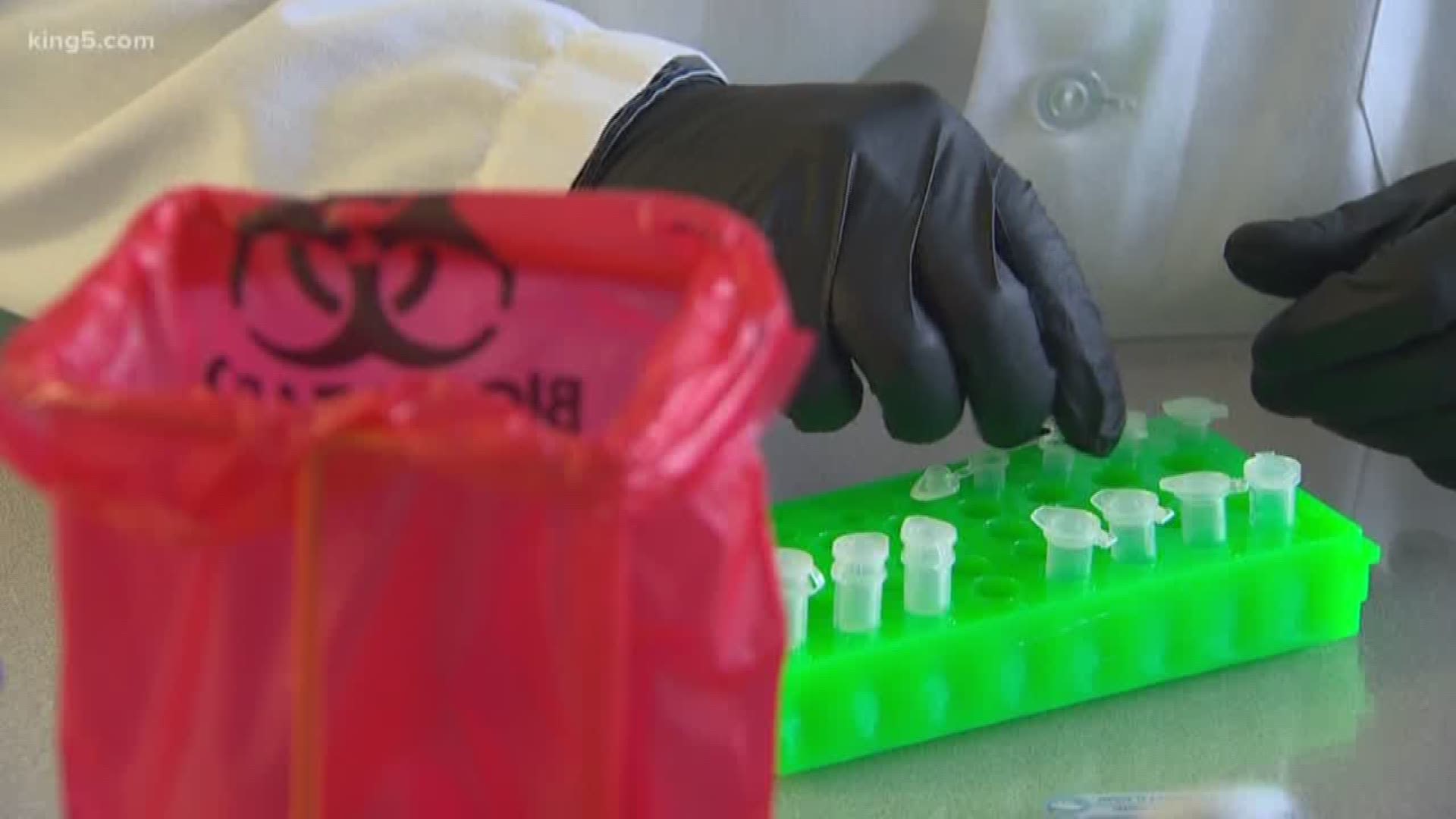SEATTLE — Editor's note: The video above on Washington's new sexual assault kit laws originally aired in April 2019.
Four years after Washington state began an effort to cut down on untested rape kits, about 32% of those kits have been tested.
In 2015, the Attorney General’s Office reported there was a backlog of 9,760 untested sexual assault kits at law enforcement agencies. Since then, 3,154 sexual assault kits were tested, according to a report released Monday from the Washington Sexual Assault Forensic Examination Best Practices Advisory Group.
Of those 3,154 kits, DNA profiles from 1,229 of them have been uploaded to the CODIS database, and 440 matched a profile already in the database. Seventy-six of those hits matched more than one case, according to the report.
Rep. Tina Orwall (D-Des Moines) who helped form the advisory group said she's proud of the group has done.
“Together, we are building a better, more informed system, so that no survivor in our state ever has to wonder again if their rape kit was tested,” Orwall said in a statement.
In some instances, the effort is already working. The advisory group pointed to a 2007 sexual assault where the kit went untested until December 2017. The suspect was subsequently charged with child rape.
However, there are still 4,489 kits that haven’t been tested, and 2,117 kits are in the process of being tested, including kits that are waiting to be submitted to a private lab or are pending peer review from the state crime lab.
The advisory group also provided five recommendations to the state Legislature and the governor: provide resources to investigate and prosecute cold cases, develop protocols for access to victim advocates in hospitals, store unreported sexual assault kits for 20 years and provide funding to store those kits at law enforcement agencies and collect DNA samples from certain offenders at sentencing.
The Attorney General’s Office estimated 30,000 felony offenders were ordered to provide a DNA sample in the courtroom at sentencing, but the samples were never collected.
In October, Washington received nearly $5.3 million in grants to inventory, test and track unsubmitted rape kits and expand DNA collection from offenders. The grant will also help increase crime lab capacity.
Other legislative policy changes also aim to help sexual assault survivors. A new law passed last session mandates newly submitted kits be tested within 45 days and unsubmitted kits be tested within two years. Another new law changes the statute of limitations for certain sex crimes. There is no longer a statute of limitations for sex crimes involving minors, and the statute of limitations for rape involving adults was raised from 10 to 20 years.

